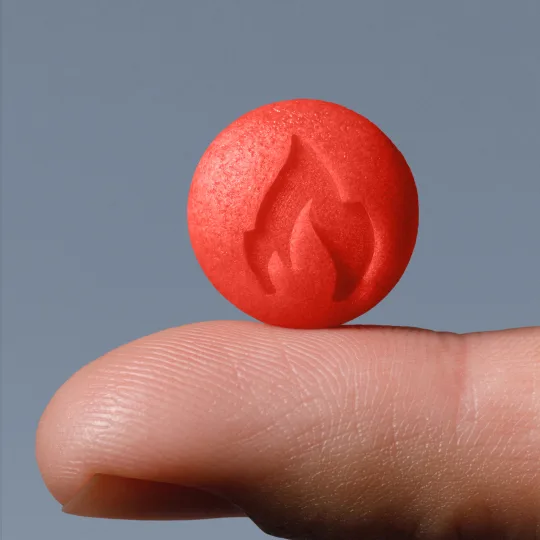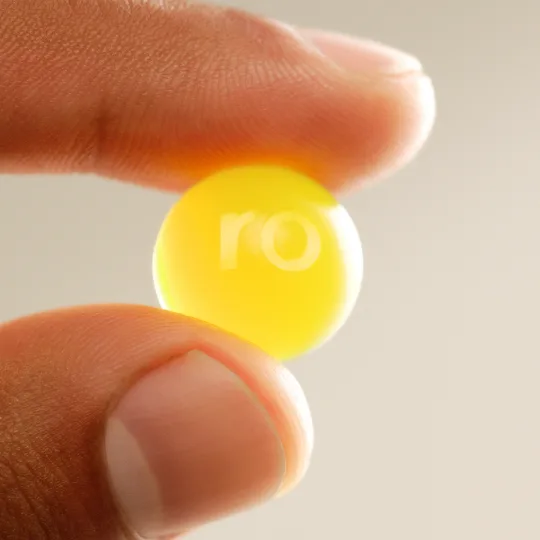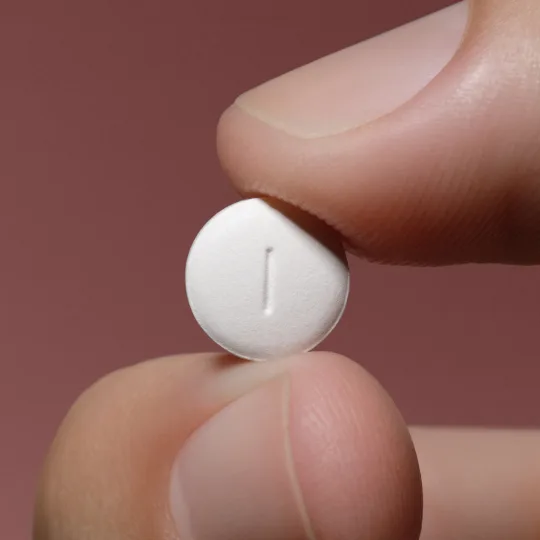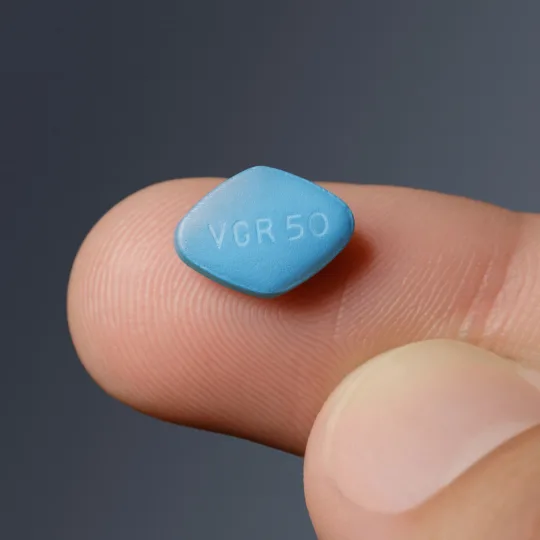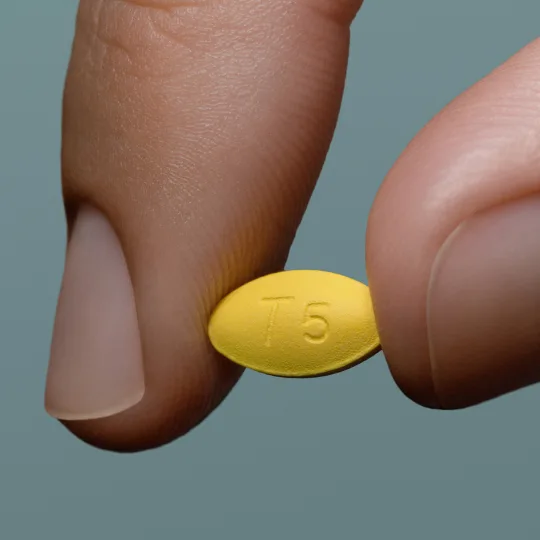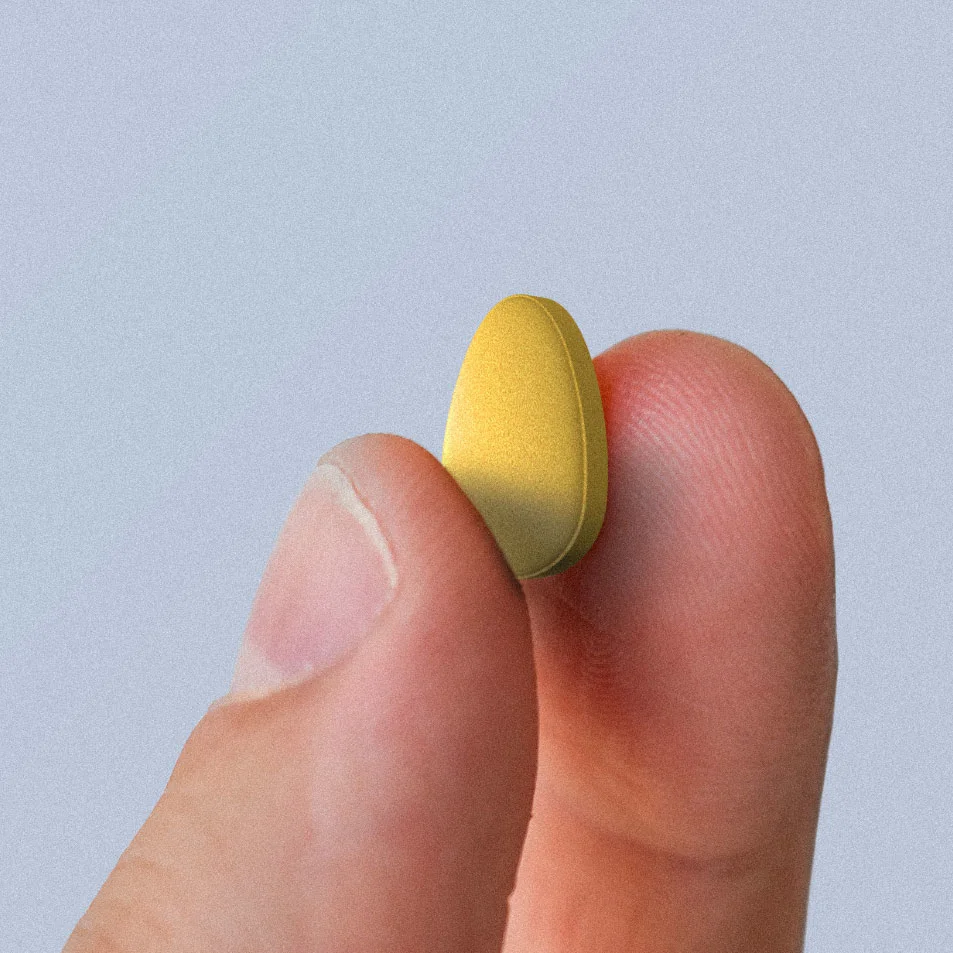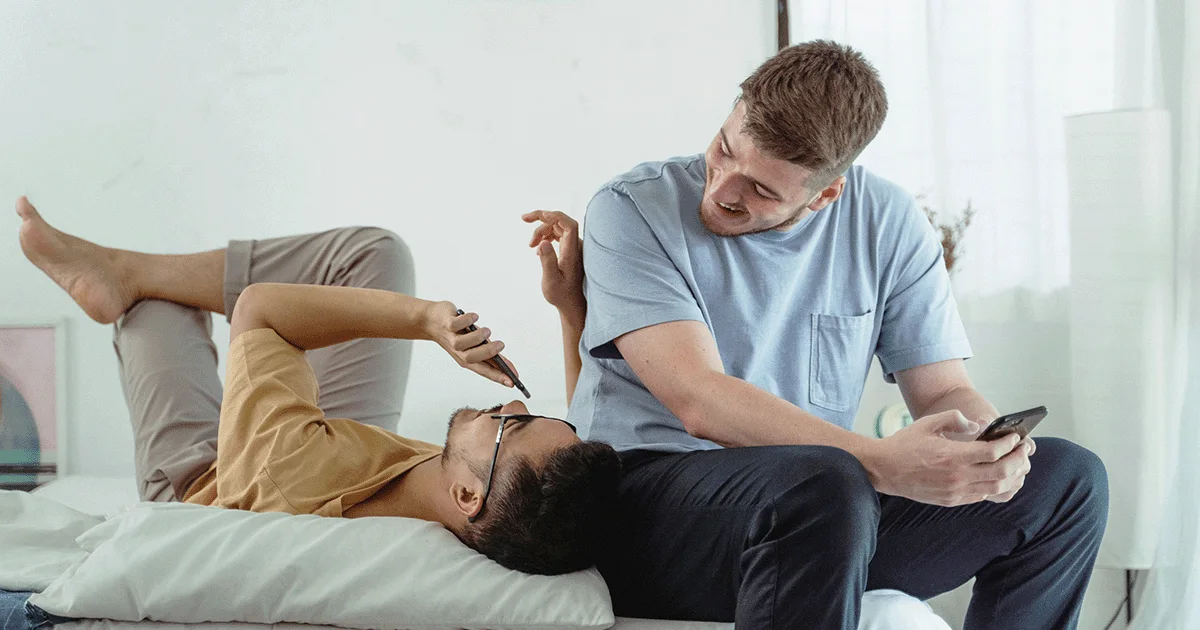Key takeaways
Viagra may not work for everyone on the first try—it can take multiple attempts and the right timing, dose, and conditions to see results.
If Viagra isn’t effective, underlying factors like low testosterone, nerve damage, medication interactions, and/or cardiovascular issues may be involved.
There are several prescription alternatives to Viagra, including tadalafil, vardenafil, avanafil, and combination treatments, that may work better depending on your needs. Injectable medications can be used, too, which might be helpful if pills don’t work.
Ro offers access to multiple ED treatments, including Daily Rise Gummies and Ro Sparks, and licensed healthcare providers who can help personalize your treatment plan.
Here's what we'll cover
Key takeaways
Viagra may not work for everyone on the first try—it can take multiple attempts and the right timing, dose, and conditions to see results.
If Viagra isn’t effective, underlying factors like low testosterone, nerve damage, medication interactions, and/or cardiovascular issues may be involved.
There are several prescription alternatives to Viagra, including tadalafil, vardenafil, avanafil, and combination treatments, that may work better depending on your needs. Injectable medications can be used, too, which might be helpful if pills don’t work.
Ro offers access to multiple ED treatments, including Daily Rise Gummies and Ro Sparks, and licensed healthcare providers who can help personalize your treatment plan.
If you’ve tried everything and Viagra doesn’t work, you may want to ask your provider about tadalafil (Cialis), avanafil, or vardenafil. These are tablet options that work similarly. Other ED treatments, such as penile injections or vacuum devices, may also help you achieve an erection if taking pills hasn’t worked for you. A healthcare provider can help find the safest and most effective alternative for you.
Viagra, the brand name for sildenafil, helps increase blood flow to the penis, making it easier to get and stay hard when you’re sexually aroused. It belongs to a class of medications called PDE5 inhibitors, which can help relax blood vessels and smooth muscle in the penis so more blood can flow in when you’re turned on.
It doesn’t cause an automatic erection––you still need to be sexually stimulated—but when it works, it can make a big difference for people dealing with erectile dysfunction (ED). People with ED have trouble getting or keeping an erection firm enough for sex, often due to physical, psychological, or lifestyle factors that affect blood flow, nerve signals, or arousal.
But what if Viagra doesn’t work? There are a few reasons that might be happening, and several things you can try to get better results. That’s what we’ll tackle in this guide.
Why doesn’t Viagra work?
If Viagra (sildenafil) isn’t working for you, it doesn’t mean something is wrong with the medication, or with you, or that you’re out of options.
In fact, there are quite a few reasons why it might not be doing the job, and some of them have simple fixes. Here’s a breakdown of what could be going on and what you can do about it.
1. You’re not taking the right dose
Why: The dose you’re taking might be too low for your body’s needs.
How to fix it: First, it’s important to say this upfront: You should never change your Viagra dose on your own. Always talk to your healthcare provider before making any adjustments. Taking more than prescribed can lead to unwanted side effects—and it won’t necessarily make the medication work better.
That said, if you’ve been prescribed a lower dose, like 25 mg or 50 mg, and you’re not seeing results, it’s possible that a different dose might be more effective for you. The most common starting dose is 50 mg, taken about an hour before sex, but everyone’s body responds a little differently so your starting dose may be different.
If your current dose isn’t cutting it, your healthcare provider can help decide whether it makes sense to adjust it. They’ll also look at your overall health, any medications you’re taking, and how you’ve responded so far. The goal is to find the dose that’s both safe and effective for your specific needs.
2. You're taking it on a full stomach
Why: What you eat before taking Viagra can slow down how quickly the medication is absorbed, which can make it feel like it’s not working.
How to fix it: Viagra works best when it’s taken correctly, and that means paying attention to what’s going on in your stomach at the time.
Taking the medication with a heavy or high-fat meal can slow down how quickly your body absorbs it. One study showed that eating a full meal before taking Viagra delayed its effects by about an hour and reduced the peak level of the medication in the bloodstream by nearly 30%.
If you’ve taken Viagra and found it didn’t work right away, it may just need more time, especially if you ate a large meal beforehand.
Not to worry, though. The study also found that even when people took Viagra with food, it still worked well enough to support sex. This means that a full stomach might slow the medication down a bit, but it doesn’t cancel out its impact altogether.
Still, for the most reliable results, aim to take Viagra on an empty stomach or after a light meal.
3. You’re not timing it right
Why: Viagra doesn’t work instantly, and how long you wait before having sex may affect how well it works.
How to fix it: Like any medication, Viagra needs some time to kick in. Most people start to feel the effects within 30 to 60 minutes after taking it, though it can begin working sooner.
In fact, one study found that Viagra can begin working as soon as 12 minutes after taking a 50 mg dose, though most people see effects within 30 minutes. 71% of study participants had erections within 30 minutes, and 82% responded within 45 minutes.
The ideal window seems to be about an hour before sex, but you can take it anywhere from 30 minutes to four hours in advance. In fact, another study suggests that Viagra may still help with erections up to 10 hours after you take it, though effectiveness starts to drop off the longer you wait.
The key is not just the timing, but also the context. You need to be sexually aroused for Viagra to work. The medication can help with blood flow, but it doesn’t increase libido or desire on its own. So give it time, make sure you’re in a relaxed setting, and remember that it may take a few tries to figure out the timing that works best for your body. One tip that might help you is to take the medication on a day you don’t have partnered sexual activity planned. That way, you may be able to see how your body reacts to the dosage in more controlled conditions.
4. You may have a neurological condition
Why: Some medical conditions can affect the nerve pathways needed to trigger an erection, which can make Viagra less effective.
How to fix it: Viagra helps increase blood flow to the penis, but it can’t overcome problems with the nerves that send the “Let’s get hard” signal in the first place.
In people with certain neurological conditions, those signals don’t always come through. That can make Viagra seem like it isn’t working, when in fact the issue lies in the messaging, not the medication.
This kind of ED is known as neurogenic ED, and it’s more common than you might think. A study showed it can happen with conditions like spinal cord injury, multiple sclerosis (MS), Parkinson’s disease, stroke, and epilepsy.
When Viagra doesn’t work, diabetes could also be a contributing factor. Diabetes has numerous effects on the body, including causing damage to nerves over time. Improving blood sugar control may help with ED but may not be enough to reverse nerve damage that has already occurred.
Certain surgeries, like those involving the prostate, bladder, or spine, are also known to damage the nerves that play a role in erections.
In MS, sexual function can be impacted by both direct nerve damage and related issues like fatigue or emotional stress.
And in Parkinson’s, changes in brain chemistry can interfere with both desire and arousal.
These are only some of the conditions that can impact the nervous system and result in ED.
What makes neurogenic ED especially complex is that it doesn’t always behave the same way. For example, people with spinal cord injuries may still get erections in some contexts and not others, depending on which parts of the nervous system have been damaged. Each of these conditions affects different parts of the nervous system, so ED may show up differently for everyone.
That’s why it’s so important to talk with your healthcare provider if you’re managing one of these conditions and Viagra isn’t working. Your provider can suggest alternative ED treatments like injections or vacuum devices (and, in some cases, penile implants) if oral medications are not working in neurogenic ED.
5. You have other chronic health conditions
Why: If your arteries are narrowed or damaged, there may not be enough blood reaching the penis to support a firm erection—even with Viagra.
How to fix it: Viagra works by relaxing blood vessels to help more blood flow into the penis. But if those blood vessels are already clogged or stiff due to underlying cardiovascular issues, there’s only so much the medication can do.
When arteries become narrowed or hardened—a condition known as atherosclerosis—it affects the entire vascular system, including the arteries that supply blood to the penis. In fact, ED can sometimes show up before any other signs of heart disease and be the first clue that something is wrong with your body’s blood flow.
According to research, people with ED were significantly more likely to experience serious cardiovascular events like heart attacks and strokes than those without ED, even after accounting for other risk factors like age, smoking, and medication use.
In other words, ED may not just be a quality-of-life issue—it could be your body’s early warning signal that something more serious is going on with your heart or blood vessels.
If your erections aren’t what they used to be and Viagra isn’t helping, your healthcare provider might want to take a closer look at your overall heart health. This could include checking your cholesterol, blood pressure, and blood sugar, and even evaluating for metabolic syndrome.
From there, treatment might involve medications to improve heart health, or lifestyle changes like eating more nutrient-dense foods, exercising regularly, and quitting smoking.
6. Your erection doesn’t last
Why: You might be able to get hard, but if the blood doesn’t stay in the penis long enough, the erection softens too soon for satisfying sex.
How to fix it: If you can get an erection but can’t maintain it, this may be a sign of venous leak—when blood flows into the penis but escapes before an erection is complete or long-lasting. This can feel frustrating, especially if Viagra helps you get hard but doesn’t help you stay that way.
To fix this, your doctor can help you pinpoint the issue with tests like a Doppler ultrasound to check your blood flow. Depending on the severity, treatments could include penile injections to enhance blood flow or even a penile implant if the problem is more severe. In some cases, a vacuum erection device might help keep blood in the penis long enough for a successful sexual experience.
7. Your hormones might be out of balance
Why: Low testosterone or thyroid issues can affect sexual desire, disrupt the erection process, and make ED medications like Viagra less effective.
How to fix it: When ED medications like Viagra aren’t working, hormone levels could be part of the reason—especially testosterone and thyroid function, which both play a role in how the body responds to sexual stimulation.
Testosterone is involved in regulating the timing of the erectile process and coordinating it with sexual desire. Low testosterone (a condition known as hypogonadism) may affect several factors that contribute to ED, including physical health, stress response, and relationship issues.
While the role of testosterone in ED treatment isn’t fully understood, some people with low testosterone may see improved outcomes when testosterone therapy is combined with a PDE5 inhibitor like Viagra. Remember that low testosterone should only be diagnosed by a healthcare provider.
Thyroid function can also matter. Large studies have shown that overt hyperthyroidism—when thyroid-stimulating hormone is suppressed and free thyroxine is elevated—may be linked to a higher likelihood of severe ED.
If Viagra hasn’t been effective, and especially if you’re noticing other symptoms including low sex drive, changes in your energy levels, or mood changes, it may be worth talking to your healthcare provider about hormone testing.
Addressing an underlying hormonal imbalance could help improve how well ED treatment works and may also support your overall health.
8. You’re taking another medication that’s interfering
Why: Some commonly prescribed drugs may affect sexual function, making it harder to get or keep an erection, and could reduce how well Viagra works.
How to fix it: Certain medications have been linked to ED, and it’s important to be aware so that you can discuss your options with your healthcare provider.
For example, a national study found that drugs like 5-alpha reductase inhibitors like finasteride (used for prostate enlargement or hair loss) and neuropsychiatric medications (like antidepressants and antipsychotics) were associated with a significant number of reported ED cases.
These drugs may influence hormone levels or affect neurotransmitters involved in sexual function.
Some blood pressure medications, such as non-selective beta-blockers and certain diuretics, have also been associated with ED, partially because they decrease blood flow to the penis.
Opioids, which are used to manage chronic pain, may also interfere with hormone regulation and sexual desire, especially when taken long term.
Certain drugs that affect the CYP3A4 enzyme can interfere with how your body processes medications like Viagra, potentially increasing the risk of side effects.
These include antifungals like ketoconazole, some HIV medications, and antibiotics like erythromycin. If you’re taking this type of medication, your healthcare provider may limit your dosage of Viagra accordingly. Grapefruit juice is also known to have a similar effect on the CYP3A4 enzyme, so you may also want to limit your consumption of grapefruit juice as well. Be sure to follow your healthcare provider’s instructions.
Remember that this list is not exhaustive, and you should share all the medications you are taking with your healthcare provider.
If you’ve noticed changes in your erections after starting or adjusting a medication, it may be worth discussing with your healthcare provider. In some cases, switching to a different medication—or adjusting the dose—could help.
But never stop or change your prescription without medical guidance. Your provider can help you weigh the benefits and potential side effects and explore other ED treatment options that may work better alongside your current medications.
9. Your mental health may be playing a role
Why: Depression and emotional stress may interfere with your ability to respond to ED medication, even when the physical conditions for an erection are in place.
How to fix it: Sexual arousal is more than just a physical reaction—it also depends on emotional and mental wellbeing. A large meta-analysis found a clear association between ED and depression. Specifically, people with depression had a 39% higher likelihood of reporting ED compared to those without depressive symptoms.
Interestingly, the relationship may go both ways: Having ED was also linked to a higher risk of developing depression later on.
If you’re dealing with symptoms of depression, such as low mood, loss of interest in activities, difficulty sleeping, or feelings of hopelessness, it’s worth bringing up with your healthcare provider.
Treating depression may not only improve your mental health, but it could also support better sexual function. Options might include talk therapy, lifestyle changes, or medication, depending on your needs.
10. You may need to quit smoking
Why: Cigarette smoking is a well-documented risk factor for ED. It can damage blood vessels and reduce blood flow to the penis, making it harder to get or maintain an erection—even when using medications like Viagra.
How to fix it: A clinical study found a direct link between how much a person smoked (measured in pack-years) and the severity of their ED symptoms. The more someone smoked, the worse their erectile function tended to be.
The good news is that quitting smoking may lead to noticeable improvements. In the same study, men who quit smoking saw their erectile function improve by at least 25% after one year, compared to no improvement in those who kept smoking.
In fact, the group that quit had significantly better outcomes across the board, while current smokers were more likely to see their ED worsen over time.
If you smoke and Viagra isn’t working as well as you'd hoped, quitting could be an important part of improving sexual function. While the degree of improvement may vary depending on age and the severity of ED at the start, the evidence shows it’s worth considering as part of your overall treatment plan.
Have better sex with Ro
What if Viagra is not working the first time?
If Viagra is not working, the dose may be too low for your needs. A healthcare provider may recommend adjusting your dosage or exploring other ED treatments. Always talk to a provider before changing how you take Viagra to avoid unwanted side effects.
It’s actually pretty common for Viagra not to work on the first try.
In clinical trials, people taking Viagra (sildenafil) had successful intercourse about 69% of the time, compared to 22% in those taking a placebo. But those results came after repeated use, not just one attempt. In fact, data from multiple studies showed that people often needed several tries to figure out the right timing and conditions for the medication to work best.
If it didn’t work for you the first time, don’t assume it’s not going to help at all. It may take a few tries to find what works for your body—maybe by adjusting when you take it, trying it on a lighter stomach, or giving yourself more time to get aroused.
Many people see better results after using Viagra a few times consistently. If things still aren’t improving after a handful of attempts, that’s a good time to check in with your healthcare provider to talk through next steps.
Does Viagra always work?
Viagra helps many people, but it doesn’t always work for everyone or every time. First, you need to be sexually aroused. If you cannot achieve an erection within four hours of taking the medication, it’s time to look into why that was the case. A healthcare provider can work with you to suggest other treatment options or treatment strategies.
Some people may need a different dose, while others may benefit more from another ED treatment altogether. If it’s not working the way you hoped, you’re not out of options. There are other medications and therapies that might be a better fit.
When should you consult your healthcare provider?
Viagra isn’t something you can pick up over the counter—it requires a prescription, which means you’ll need to connect with a healthcare provider before starting it. This is an important step to make sure Viagra is safe for you and that it won’t interfere drastically with any other medications or health conditions you may have.
Make sure to tell your provider if you have a history of heart disease, stroke, prostate issues, digestive issues, or if you’re taking any medications, especially:
Antifungal medications like ketoconazole or itraconazole
Nitrates (commonly used for chest pain or heart conditions)
HIV treatments like ritonavir
Blood pressure medications
Remember that this list is not exhaustive and you should share all the medications you are taking with your healthcare provider.
When taken as prescribed, Viagra is generally safe and well-tolerated. Some of the most common side effects include headache, facial flushing, nasal congestion, vision changes, and indigestion. These are usually mild and go away on their own, but if they stick around or bother you, let your provider know.
In rare cases, Viagra can cause more serious effects. One of these is a painful erection that lasts more than four hours (called priapism). This is a medical emergency—don’t wait to see if it goes away. Get help right away to prevent long-term damage.
Since these effects can vary from person to person, it’s important to try different options and figure out the one that works best for you by continuing to discuss with your healthcare provider.
Since sexual activity can put some strain on your heart, your provider may recommend extra precautions if you’ve had issues with high or low blood pressure, heart failure, or other cardiovascular conditions. They may adjust your dosage or monitor your response to make sure you’re using Viagra safely.
And if you’ve given Viagra a fair try and it still isn’t working, despite getting the timing, dose, and other factors right, it’s time to check back in. Your provider can walk you through other options that may work better for your needs.
What Viagra alternatives work?
If Viagra doesn’t work well for you—or if you’re looking for something different—there are several other ED treatments available.
Many of these alternatives are available through Ro’s online platform, making it easy to connect with a licensed healthcare provider and get prescribed treatment from the comfort of your own home.
After completing a medical consultation, your prescription (if appropriate) can be shipped directly to your door in discreet packaging.
Here’s a breakdown of ED medications you can consider:
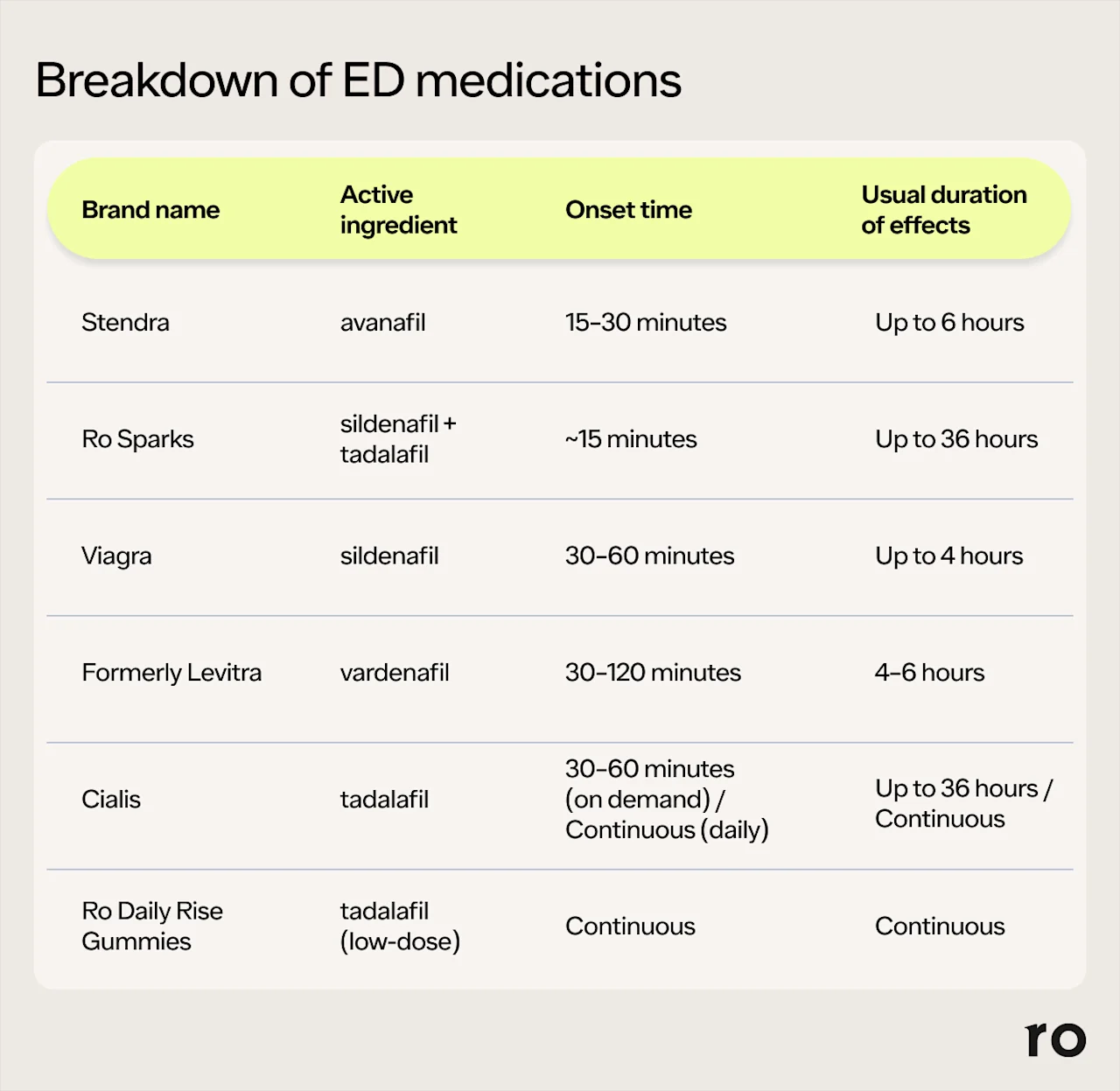
Stendra (avanafil)
Stendra is one of the fastest-acting ED medications available today. It can begin working in as little as 10 to 15 minutes and typically lasts up to six hours. It’s a good choice for people who want minimal planning and are looking for fewer side effects compared to older medications.
Ro Sparks (sildenafil + tadalafil)
Ro Sparks is a dissolvable tablet that contains both sildenafil and tadalafil, offering the benefits of fast onset and long-lasting effects. It usually starts working in about 15 minutes and can last up to 36 hours.
This option is ideal for those who want both quick action and sustained results, without having to swallow pills. While this specific combination is not FDA-approved as a single product, both active ingredients are FDA-approved for treating ED.
Viagra (sildenafil)
Viagra, also known by its generic name sildenafil, typically starts working within 30 to 60 minutes. Its effects usually last around four hours. This is a tried-and-tested option for people who prefer taking ED medication as needed, with decades of clinical use behind it.
Vardenafil
Vardenafil (previously available as brand name Levitra) works similarly to Viagra but may have a slightly longer duration of action—around four to six hours. It usually begins working within 30 to 60 minutes and may be available in both standard tablets and a dissolvable form for faster absorption.
It’s a good choice for people who want something a bit longer-lasting than Viagra without committing to a daily option.
Cialis (tadalafil)
Cialis stands out for its long duration of effect, which can last up to 36 hours. It can be taken as needed, usually 30 to 60 minutes before sex, or in a lower daily dose for ongoing support.
Because of its long window of effectiveness, it’s often called the “weekend pill,” and it offers more spontaneity than most other options. Find out how to use Cialis safely in this guide.
Ro Daily Rise Gummies
Ro’s Daily Rise Gummies contain a low dose of tadalafil and are designed to be taken once a day. Instead of timing your dose around sex, this daily approach allows the medication to build up in your system, so you’re ready whenever the moment feels right.
It’s ideal for people who want consistent effects without having to plan around pills. While the Daily Rise Gummies are not specifically FDA-approved, their active ingredient has been FDA-approved for the treatment of ED.
Non-medication options
If prescription ED medications aren’t an option due to health conditions or personal preference, there are other treatments available. Vacuum erection devices (pumps) or cock rings can help create an erection by increasing blood flow to the penis and preventing blood flow out of it to help you stay hard for the desired duration. There are also topical gels and injections that improve circulation, as well as surgical options like penile implants for long-term ED management.
A healthcare provider can help you compare the pros and cons of these choices and determine what’s best for your body and lifestyle.
Bottom line
If Viagra hasn’t worked the way you expected, it’s completely normal to feel frustrated, but it doesn’t mean you’re out of options. Many people need a few tries to find the right timing, dose, or treatment approach that works for them.
In other cases, underlying health issues or medications may be playing a role. The important thing is knowing that ED is treatable, and that support is available.
What if Viagra doesn’t work? Keep these things in mind:
Viagra might not work perfectly on the first try: It can take a few attempts to figure out the best conditions for it to work—like adjusting when you take it or making sure you’re sexually aroused when you do.
Your dose or timing might need adjusting: If you’re not seeing results, it may be due to how much you’re taking or when you’re taking it. A healthcare provider can help fine-tune your plan safely.
Medical conditions, hormone levels, or other medications could be interfering: Diabetes, nerve damage, low testosterone, or even antidepressants can impact how well ED medications work—and may mean you need to try a different strategy.
There are several other proven ED treatments to try: Options like tadalafil (Cialis), vardenafil (formerly available as Levitra), avanafil (Stendra), and combination treatments like Ro Sparks offer different onset times and durations that may better fit your needs.
Daily treatments offer more flexibility: Low-dose options like Ro’s Daily Rise Gummies can be taken every day, so you’re ready anytime—without needing to plan around a pill.
You don’t have to figure this out alone: Through Ro, you can connect with a licensed healthcare provider who can walk you through your options and help you find a treatment that fits your body and lifestyle.
ED treatment is rarely uniform. The right approach often involves a mix of trial, expert guidance, and a treatment plan that works for your life—not just your symptoms.
Frequently asked questions (FAQs)
Can you cut Viagra in half?
Viagra tablets can sometimes be split, but it’s not always recommended. While splitting may seem like a way to adjust your dose or save money, it can lead to inaccurate dosing if not done carefully.
Tablets may crumble or break unevenly, even when scored, and there’s a risk of taking too much or too little. If a lower dose is available commercially (like a 25 mg or 50 mg tablet), it’s usually safer to take the full tablet instead of cutting a higher dose.
If you’re considering splitting Viagra, talk to your healthcare provider first (and maybe even your pharmacist)—they can help you decide if it’s safe and appropriate in your case.
Does Viagra work with diabetes?
Viagra can be effective for people with diabetes, though it may not work the same for everyone. Diabetes can affect blood flow and nerve function, which are both important for erections, so you may need to work closely with your provider to find the right dose or treatment plan.
What if a 100 mg Viagra pill doesn't work?
If 100 mg Viagra tablets don't work, ask about tadalafil (Cialis), vardenafil, or avanafil. Penile injections or vacuum devices are alternative ED treatments to support erections. A healthcare provider can help find a safe, effective treatment based on your needs.
It may be that the medication isn’t the right fit for your body, or that other factors—like timing, underlying health conditions, or medications—are affecting how it works.
Does sildenafil work?
Sildenafil works, typically within 30–60 minutes, by increasing blood flow to the penis during arousal. The drug helps many people with ED achieve and maintain an erection. Sildenafil usually lasts for about four hours. Take sildenafil (Viagra) only as prescribed.
Like any medication, sildenafil’s effectiveness depends on the condition, the dose, and how it’s taken, but it’s a well-established treatment option. Your provider can adjust your treatment if sildenafil isn’t effective.
What happens if you take Viagra without ED?
Taking Viagra without ED can cause side effects like priapism and psychological dependence. It may also increase health risks, including dangerous drug interactions and potential heart problems. Viagra can treat ED and improve sexual performance in those with ED. It should only be used with a prescription from a healthcare provider, not casually.
DISCLAIMER
If you have any medical questions or concerns, please talk to your healthcare provider. The articles on Health Guide are underpinned by peer-reviewed research and information drawn from medical societies and governmental agencies. However, they are not a substitute for professional medical advice, diagnosis, or treatment.
Viagra Important Safety Information: Read more about serious warnings and safety info.
Cialis Important Safety Information: Read more about serious warnings and safety info.
Finasteride Important Safety Information: Read more about serious warnings and safety info.
References
Atsbeha, B. W., Kebede, B. T., Birhanu, B. S., et al. (2021). The Weekend Drug; Recreational Use of Sildenafil Citrate and Concomitant Factors: A Cross-Sectional Study. Frontiers In Medicine, 8, 665247. doi: 10.3389/fmed.2021.665247. Retrieved from https://pmc.ncbi.nlm.nih.gov/articles/PMC8417567/
Corona, G. & Maggi, M. (2010). The role of testosterone in erectile dysfunction. Nature Reviews. Urology, 7(1), 46–56. doi: 10.1038/nrurol.2009.235. Retrieved from https://pubmed.ncbi.nlm.nih.gov/19997070/
Corona, G., Wu, F. C. W, Forti, G., et al. (2012). Thyroid hormones and male sexual function. International Journal of Andrology, 35(5), 668–679. doi: 10.1111/j.1365-2605.2012.01266.x. Retrieved from https://pubmed.ncbi.nlm.nih.gov/22834774/
DailyMed. (2024). Label: Vardenafil hydrochloride tablet. National Library of Medicine. Retrieved from https://dailymed.nlm.nih.gov/dailymed/drugInfo.cfm?setid=2782efed-6198-47b9-81ac-3e255e2ab7f6
DailyMed. (2023). Stendra - Avanafil tablet. National Library of Medicine. Retrieved from https://dailymed.nlm.nih.gov/dailymed/drugInfo.cfm?setid=fa7d93e3-b69b-4e02-8146-89760cd8e9d6
Defeudis, G., Mazzilli, R., Tenuta, M., et al. (2022). Erectile dysfunction and diabetes: A melting pot of circumstances and treatments. Diabetes/Metabolism Research and Reviews, 38(2), e3494. doi: 10.1002/dmrr.3494. Retrieved from https://pubmed.ncbi.nlm.nih.gov/34514697/
Dhaliwal, A. & Gupta, M. (2023). PDE5 inhibitors. StatPearls. Retrieved on Mar. 31, 2025 from https://www.ncbi.nlm.nih.gov/books/NBK549843/
Eardley, I., Ellis, P., Boolell, M., et al. (2002). Onset and duration of action of sildenafil for the treatment of erectile dysfunction. British Journal of Clinical Pharmacology, 53 Suppl 1(Suppl 1), 61S–65S. doi: 10.1046/j.0306-5251.2001.00034.x. Retrieved from https://pmc.ncbi.nlm.nih.gov/articles/PMC1874251/
Eli Lilly and Company. (2023). Cialis (tadalafil) tablets, for oral use: Highlights of prescribing information. Retrieved from https://pi.lilly.com/us/cialis-pi.pdf
Hatzimouratidis, K. (2006). Sildenafil in the treatment of erectile dysfunction: an overview of the clinical evidence. Clinical Interventions In Aging, 1(4), 403–414. doi: 10.2147/ciia.2006.1.4.403. Retrieved from https://pmc.ncbi.nlm.nih.gov/articles/PMC2699643/
Jetter, A., Kinzig-Schippers, M., Walchner-Bonjean, M., et al. (2002). Effects of grapefruit juice on the pharmacokinetics of sildenafil. Clinical Pharmacology and Therapeutics, 71(1), 21–29. doi: 10.1067/mcp.2002.121236. Retrieved from https://pubmed.ncbi.nlm.nih.gov/11823754/
Kaplan-Marans, E., Sandozi, A., Martinez, M., et al. (2022). Medications Most Commonly Associated With Erectile Dysfunction: Evaluation of the Food and Drug Administration National Pharmacovigilance Database. Sexual Medicine, 10(5), 100543. doi: 10.1016/j.esxm.2022.100543. Retrieved from https://pmc.ncbi.nlm.nih.gov/articles/PMC9537247/
Kovac, J. R., Labbate, C., Ramasamy, R., et al. (2015). Effects of cigarette smoking on erectile dysfunction. Andrologia, 47(10), 1087–1092. doi: 10.1111/and.12393. Retrieved from https://pmc.ncbi.nlm.nih.gov/articles/PMC4485976/
Leslie, S. W. & Sooriyamoorthy, T. (2024). Erectile Dysfunction. StatPearls. Retrieved from https://www.ncbi.nlm.nih.gov/books/NBK562253/
Maiorino, M. I., Bellastella, G., & Esposito, K. (2015). Lifestyle modifications and erectile dysfunction: What can be expected? Asian Journal of Andrology, 17(1), 5–10. doi: 10.4103/1008-682X.137687. Retrieved from https://pubmed.ncbi.nlm.nih.gov/25248655/
Nichols, D. J., Muirhead, G. J., & Harness, J. A. (2002). Pharmacokinetics of sildenafil after single oral doses in healthy male subjects: Absolute bioavailability, food effects and dose proportionality. British Journal of Clinical Pharmacology, 53 Suppl 1(Suppl 1), 5S–12S. doi: 10.1046/j.0306-5251.2001.00027.x. Retrieved from https://pmc.ncbi.nlm.nih.gov/articles/PMC1874258/
Shridharani, A. N. & Brant, W. O. (2016). The treatment of erectile dysfunction in patients with neurogenic disease. Translational Andrology and Urology, 5(1), 88–101. doi: 10.3978/j.issn.2223-4683.2016.01.07. Retrieved from https://pmc.ncbi.nlm.nih.gov/articles/PMC4739980/
Smith, B. P. & Babos, M. (2023). Sildenafil. StatPearls. Retrieved on Mar. 31, 2025 from https://www.ncbi.nlm.nih.gov/books/NBK558978/
U.S. Food and Drug Administration (FDA). (2017). Highlights of prescribing information: Viagra (sildenafil citrate) tablets, for oral use. Retrieved from https://www.accessdata.fda.gov/drugsatfda_docs/label/2017/020895s048lbl.pdf
Uddin, S. M. I., Mirbolouk, M., Dardari, Z., et al. (2018). Erectile Dysfunction as an Independent Predictor of Future Cardiovascular Events: The Multi-Ethnic Study of Atherosclerosis. Circulation, 138(5), 540–542. doi: 10.1161/CIRCULATIONAHA.118.033990. Retrieved from https://pubmed.ncbi.nlm.nih.gov/29891569/
Zinner, N. (2007). Do food and dose timing affect the efficacy of sildenafil? A randomized placebo-controlled study. The Journal of Sexual Medicine, 4(1), 137–144. doi: 10.1111/j.1743-6109.2006.00400.x. Retrieved from https://pubmed.ncbi.nlm.nih.gov/17233779/



